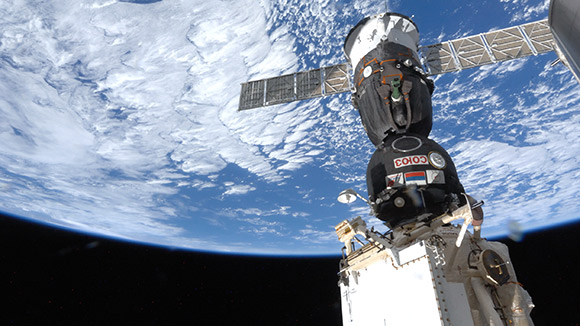
Russian researchers are preparing a very unusual 3D printing experiment for use on the International Space Station.
A report in Izvestia describes an unusual bioprinting experiment that is in the early development stages. It’s to be based on a scientific paper entitled, “Study of the possibility of three-dimensional biofabrikatsii fabric constructions carried out by a programmable self-assembly of living tissues and organs in microgravity by means of a magnetic field” [Google translation].
Bioprinting is not new; it’s typically done with a combination of dissolvable biosafe scaffolds (like supports) and living cells deposited on the scaffolds. The cells multiply and grow, while the scaffolds dissolve, leaving a segment of living, functional tissue.
Typical bioprinters are simply syringe-based mechanisms that move the extruders in paths that effect the scaffold and cell structure.
However, this seems to be something different. While the “self-assembly” part suggests the normal multiplication of the living cells, the “magnetic field” in microgravity is quite different.
Unfortunately the article does not describe exactly how this process works. One possibility is that there are magnetic-affected metal particles embedded in the living cells, and they are thus able to be guided to appropriate geometric positions using a varying magnetic field. It sounds like a very challenging approach, but then that’s what experiments are for.
Another question is simply, “what could this possibly be used for?” The Izvestia article proposes a future bioprinter could be of use on long-duration space missions where replacement body parts may be required. This is a very ambitious goal, but it’s likely such technology would not be required for quite a few years.
As of now, this project is at the proposal stage, where Roskosmos, the Russian space agency appears to have approved the project, where it will next develop the “technical specifications” for a complex mechanism that could be certified for use on the International Space Station.
Via Izvestia

